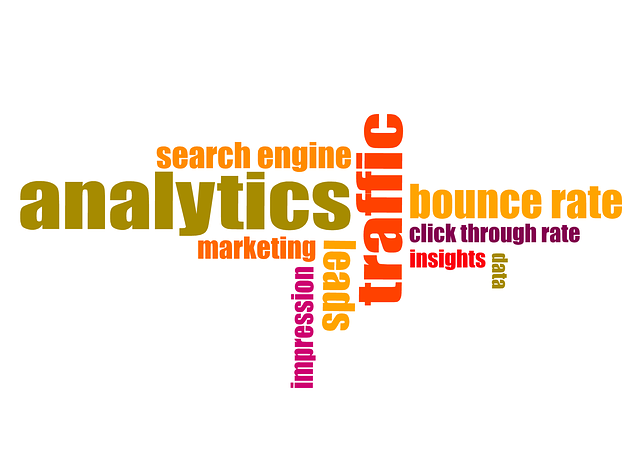ai-powered search is transforming online content discovery by understanding user intent, offering personalized experiences, faster discovery times, and improved accessibility. Implementing this technology requires NLP and machine learning algorithms to match user queries with relevant content accurately. When choosing an AI search platform (e.g., Algolia, Elasticsearch, Cohere's API), consider natural language processing, personalization, integration ease, scalability, and customization options. Integrating ai-powered search into websites enhances user experience, optimizes content discoverability, and can be measured through key performance indicators like user satisfaction ratings, click-through rates, and average session duration.
Adding intelligent, AI-powered search to your website can significantly enhance user experience and engagement. This article guides you through the process, from understanding the benefits of AI-driven search to choosing the right platform, integrating it seamlessly, and measuring its performance. Discover how advanced search technologies can revolutionize your site’s navigation, provide relevant results, and ultimately boost user satisfaction. Learn key strategies for implementing an effective AI-powered search system today.
- Understanding AI-Powered Search: Benefits and Advantages
- Key Components of Implementing an AI Search System
- Choosing the Right AI Search Platform for Your Website
- Integrating AI Search: Step-by-Step Guide
- Measuring Success: Evaluating the Performance of AI Search
Understanding AI-Powered Search: Benefits and Advantages

AI-powered search is transforming how users interact with online content, offering a host of benefits that traditional search methods cannot match. This advanced technology leverages artificial intelligence to understand user intent behind queries, providing more accurate and relevant results. Unlike basic keyword searches, AI algorithms can analyze context, semantics, and user behavior to deliver precise matches, even when the exact terms are not present on the page.
One of the key advantages is enhanced user experience. AI-powered search can anticipate user needs, suggest related topics, or provide dynamic filtering options as users type. This proactive approach allows for faster discovery, increases engagement, and encourages exploration of a site’s content. Moreover, it aids in improving accessibility by catering to diverse user preferences, including those with visual or cognitive impairments who may rely on voice search or alternative input methods.
Key Components of Implementing an AI Search System

Implementing an AI-powered search system involves several key components that work together to provide users with accurate and relevant results. The first crucial element is natural language processing (NLP), which enables the system to understand user queries as they would be expressed in everyday language, rather than just keywords. This allows for more precise matching between user intent and available content.
Additionally, machine learning algorithms play a vital role by continuously refining search accuracy based on user interactions and feedback. These algorithms learn from query patterns, content relevance, and user behavior to improve search results over time. By integrating these AI capabilities, sites can offer intelligent search functionalities that adapt and evolve with each interaction, enhancing the overall user experience.
Choosing the Right AI Search Platform for Your Website

When considering an AI-powered search platform, it’s crucial to align your choice with your website’s unique needs and target audience. Not all platforms are created equal; some excel in natural language processing while others offer robust personalization features. Evaluate your requirements thoroughly before selecting a provider. Factors like ease of integration, scalability, and customization options should be at the forefront of your decision-making process.
Researching user reviews and case studies can provide valuable insights into how well a platform performs in real-world scenarios. Look for success stories that demonstrate improved user experience and engagement resulting from implementing AI search. Remember, the best platform for you will not only enhance your site’s functionality but also deliver a seamless, intuitive search experience for your visitors.
Integrating AI Search: Step-by-Step Guide

Integrating AI-powered search into your site is a strategic move that enhances user experience and optimizes content discoverability. Here’s a step-by-step guide to help you through the process:
1. Choose an AI Search Platform: Select a platform that aligns with your website’s needs and technical capabilities. Consider factors like ease of integration, customization options, and pricing plans. Popular choices include tools like Algolia, Elasticsearch, or Cohere’s own AI search API.
2. Prepare Your Data: Ensure your content is structured and indexed for optimal search results. Clean and organize your data by categorizing it into relevant topics and metadata fields. This step is crucial for accurate and relevant search outputs.
3. Implement the Search Interface: Design a user-friendly search bar or widget on your website, allowing visitors to input queries easily. Incorporate features like autocomplete suggestions, filtering options, and faceted search to improve search precision and usability.
4. Integrate AI Search Functionality: Utilize the chosen AI platform’s API to connect it with your website’s backend. Implement the necessary code to send user queries to the AI engine and receive relevant results. Ensure seamless integration for a smooth user journey.
5. Test and Refine: Conduct thorough testing to identify any issues or inaccuracies in search results. Use diverse query types and scenarios to ensure the AI search system functions correctly. Continuously refine the model based on user feedback and analytics data for improved performance over time.
Measuring Success: Evaluating the Performance of AI Search

Measuring success is a critical aspect of integrating AI-powered search into your website. It involves evaluating how well the system understands user intent, delivers relevant results, and enhances the overall user experience. Key performance indicators (KPIs) to monitor include user satisfaction ratings, click-through rates (CTR), and average session duration. By analyzing these metrics, you can gauge the effectiveness of your AI search functionality.
Effective AI search should significantly reduce bounce rates as users find what they’re looking for faster and with greater accuracy. It should also encourage exploration by suggesting related or contextual queries, fostering deeper engagement with your site’s content. Regularly reviewing search logs, user behavior patterns, and feedback mechanisms will help you fine-tune your AI model, ensuring it continuously improves and aligns with your users’ evolving needs.
Adding intelligent, AI-powered search to your website can significantly enhance user experience and drive engagement. By understanding the benefits, choosing the right platform, and following a structured integration process, you can harness the power of AI to deliver relevant results, improve site navigation, and ultimately boost your site’s performance in today’s digital landscape. Remember that continuous evaluation and optimization are key to ensuring your AI search remains effective and aligned with user needs.
